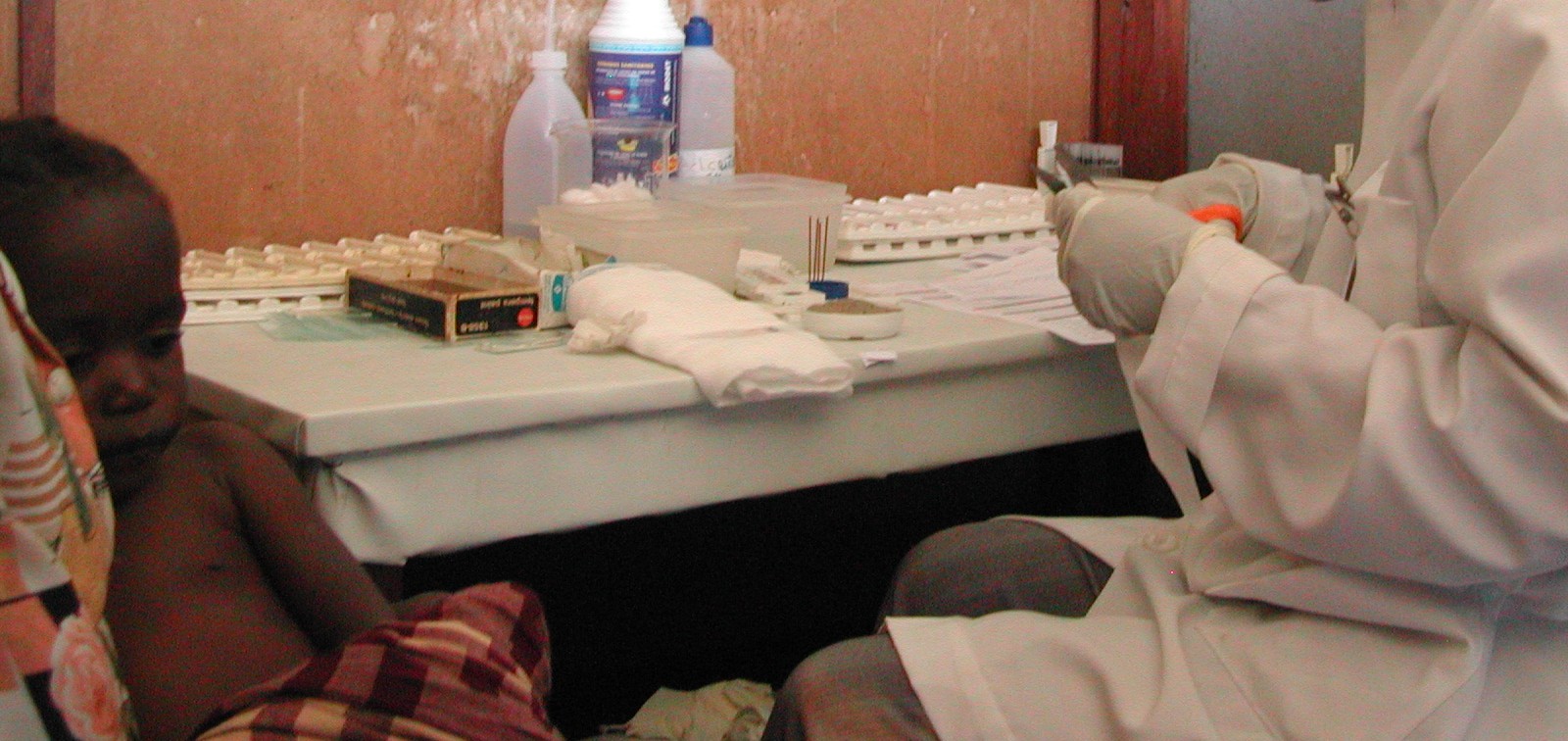The RTS,S Malaria Vaccine May Do More Than We Thought
Malaria and data science come together to reveal that, in some children, the vaccine induces antibodies that strongly recognise other parasite antigens not included in the vaccine, and that this may confer greater protection against the disease
27.04.2022
Antibodies induced by the RTS,S malaria vaccine can bind strongly to other P. falciparum antigens not contained in the vaccine, and this is associated with greater vaccine protection, according to a new study co-led by malaria and data science researchers at ISGlobal, an institution supported by “la Caixa” Foundation. The findings have implications for the monitoring of natural immunity in vaccinated populations and for the design of next-generation vaccines.
RTS,S is the first malaria vaccine to be recommended by the WHO for use in African children. The vaccine contains a fragment of the CSP protein, one of the over 5,000 proteins expressed by the P. falciparum parasite at some stage of its lifecycle. Carlota Dobaño’s team has been studying the immune response to RTS,S during many years, and had found evidence that the vaccine induced antibodies to other P. falciparum antigens besides CSP. “However, it was not clear whether this phenomenon was due to the fact that the vaccine confers only partial protection and that these children could be infected with a low, almost undetectable, number of parasites, or to the fact that the vaccine had induced antibodies capable of recognising not only the target antigen but also other parasite antigens,” explains Dobaño.
In this study, her team joined forces with the Data Science group led by Paula Petrone to identify causal effects between RTS,S vaccination and antibody responses. In collaboration with Antigen Discovery Inc. (USA), they measured levels of IgG antibodies against 1,000 P. falciparum antigens (representing 762 genes, or 14% of the parasite genome), in blood samples from 2,138 infants and children from six African sites of the phase 3 RTS,S vaccine trial, taken before and after vaccination.
The results show high increases in antibody reactivity to a small subset of malarial antigens not contained in the vaccine (off-target) in some individuals of the vaccinated group, which was not observed before vaccination or in the unvaccinated group. The levels of these antibodies were strongly correlated with anti-CSP levels, waned similarly over time, and re-increased with a booster dose. “The fact that the levels of these off-target antibody are strongly correlated suggests that anti-CSP antibodies elicited by the vaccine are recognising other malarial antigens” explains Dídac Macià, first author of the study. To date, cross-reactivity to antigens within the same pathogen has been poorly explored, in part due to technological limitations for broad antigen screening, say the authors.
The analysis also shows that vaccinated children with higher antibody reactivity to other P. falciparum antigens had a lower risk of developing clinical malaria than those with lower reactivity, despite similar anti-CSP levels. “In other words, strong responses against other malarial antigens were a predictor of increased vaccine protection, beyond what anti-CSP levels alone could predict,” says Paula Petrone, co-senior author with Dobaño. The authors now need to confirm whether this cross-reactivity to other malarial antigens confers greater protection against malaria infections, or whether it is only a marker of efficient vaccine responses.
ISGlobal’s Malaria Research Programme is supported by the Ramon Areces Foundation.
Reference
Macià D, Campo JJ, Moncunill G et al. Strong off-target antibody reactivity to malarial antigens induced by RTS,S/AS01E vaccination is associated with increased protection. JCI Insight. doi: 10.1172/jci.insight.158030



